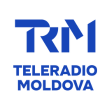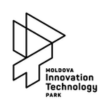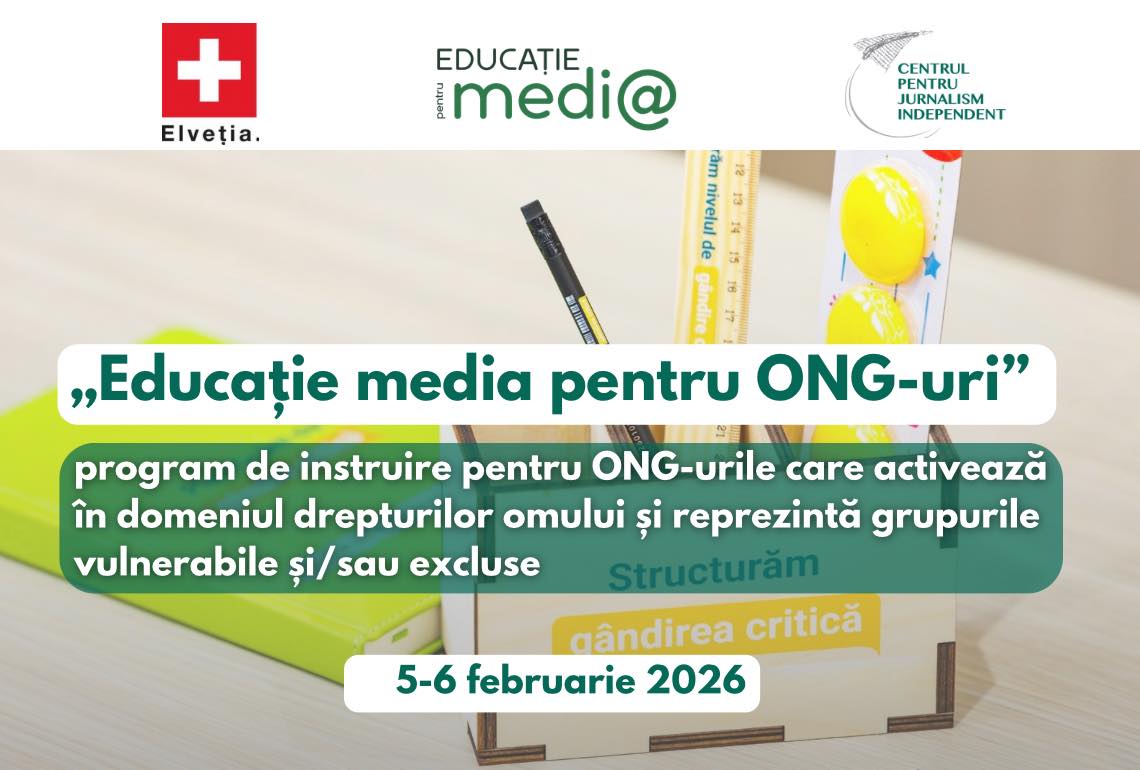Achiziții de bunuri și contractări de servicii
- Detalii
- Categorie: Achiziție bunuri, Contractare Servicii
Elaboration of the Baseline Assessment and the Performance Improvement Plan for the selected WSS Operators of the MWSSP (firms selection)
Informațiile prezentate în articolul de mai jos pot să nu mai fie actuale sau să nu mai reflecte activitățile și programele curente. Anunțul este păstrat în arhivă pentru a asigura transparența și accesul public la informațiile despre inițiativele și proiectele implementate anterior.
REQUEST FOR EXPRESSIONS OF INTEREST
(CONSULTING SERVICES – FIRMS SELECTION)
Re-advertisement 2
Republic of Moldova
Moldova Water Security and Sanitation Project
Credit No.: 7027-MD
Assignment Title: Elaboration of the Baseline Assessment and the Performance Improvement Plan for the selected WSS Operators of the MWSSP.
Reference No.: MD-PIU-NORLD-376569-CS-CQS
Date: November 8, 2023
The Government of the Republic of Moldova has received financing from the World Bank toward the cost of the Moldova Water Security and Sanitation Project (MWSSP), and intends to apply part of the proceeds for consulting services. The objective of the assignment is to strengthen capacity at local levels for WSS service delivery, through developing of the multi-year Performance Improvement Plan (PIP), to enhance the performance of WSS operators involved under Subcomponent 1.1 and to monitor progress during MWSSP implementation. The estimated implementation period September - December, 2023 (120 calendar days).
The detailed Terms of Reference (TOR) for the assignment can be found at the following website: https://www.ondrl.gov.md or can be obtained at the address given below.
The Moldova Water Security and Sanitation Project now invites eligible consulting firms (“Consultants”) to indicate their interest in providing the Services. Interested Consultants should provide information demonstrating that they have the required qualifications and relevant experience to perform the Services. The shortlisting criteria are: core business and years in business, relevant experience, technical and managerial capability of the firm. Key Experts will not be evaluated at the shortlisting stage.
The attention of interested Consultants is drawn to Section III, paragraphs, 3.14, 3.16, and 3.17 of the World Bank’s “Procurement Regulations for IPF Borrowers” November 2020 (“Procurement Regulations”), setting forth the World Bank’s policy on conflict of interest.
Consultants may associate with other firms to enhance their qualifications, but should indicate clearly whether the association is in the form of a joint venture and/or a sub-consultancy. In the case of a joint venture, all the partners in the joint venture shall be jointly and severally liable for the entire contract, if selected.
A Consultant will be selected in accordance with the Consultant’s Qualification-based Selection method set out in the Procurement Regulations.
Further information can be obtained at the address below during office hours 09.00 to 17.00 hours (Moldova Time).
Expressions of interest must be delivered in a written form to the address below (in person, or by mail, or by e-mail) by November 21, 2023, 16:00 o’clock, Moldova time, indicating the assignment title in subject line (when sent by e-mail).
P.I. National Office for Regional and Local Development,
Moldova Water Security and Sanitation Project
Stefan cel Mare 124, 3th floor, MWSSP Office 335,
mun. Chisinau, Republic of Moldova MD-2001
Tel/fax: 022 27-91-21, 069265292
E-mail: tender@ondrl.gov.md
See bellow Annex 1: Terms of Reference
Annex 1: Terms of Reference
TERMS OF REFERENCE (ToR)
Implementation of the Moldova Water Security and Sanitation Project (P173076)
Consultant Qualification Selection (CQS)
For services: Elaboration of the Baseline Assessment and the Performance Improvement Plan for the selected WSS Operators of the MWSSP within the P.I. National Office for Regional and Local Development
1. Moldova Water Security and Sanitation Project BACKGROUND
The Government of Moldova is currently implementing a project supported by the World Bank (IDA) financing the Moldova Water Security and Sanitation Project (MWSSP). The Moldova Water Security and Sanitation Project directly supports the Government’s commitment to Sustainable Development Goal No.6: to achieve universal and equitable access to safe and affordable drinking water, sanitation, and hygiene by 2030 through its Action Program and the National Water Supply and Sanitation Strategy 2014-2028.
The World Bank’s Water Security Diagnostic and Future Outlook[1] showed that there are several pressing challenges to Moldova’s water security, such as (i) inequalities in access, inadequate quality of water supply in small towns and weak performance of service providers; (ii) poor environmental health and environmental pollution due to lack of sanitation and wastewater collection and treatment; (iii) weak institutions, fragmented financing streams and unresolved reform areas which hinder programmatic delivery of services.
Access in water supply and sanitation (WSS) is constrained by large coverage gaps in rural areas, compounded by income status. Compared to other countries in the Danube region, the share of population with access to basic water and sanitation services in Moldova is low. The gap between urban and rural remains one of the largest in Europe and is one of the key water security issues the country is facing. Based on JMP-data[2], gains were made in rural water supply access to drinking water services from piped networks, from 33 percent in 2000 to an estimate 40 percent in 2017, while urban piped service remained almost stable at 85 percent.
Household Budget Survey (HBS) (2018) data provides the picture on national access to a public piped water supply being 70 percent, with urban access at 92.4 percent and rural access at 52.2 percent. However, the water quality of rural piped system is often compromised and below drinking water quality standard. Those not served by public centralized systems rely on so-called self-supply, through private shallow wells. Around one in three people rely on self-supply for their drinking water with 80 percent of wells not compliant with drinking water norms (e.g. nitrates, e-coli). The poorest quintile of the rural population faces the largest obstacles to get connected to a public system and is least able to invest in private piped supply by wells (9 percent), with 42.2 percent of the poorest households collecting water with buckets or carts. In 2018, out of a total of 1,220 centralized water systems, 1,168 were functional, although performance data is not systematically available.
In response to these challenges, the Project Development Objective (PDO) of the MWSSP is to increase access to safely managed water supply and sanitation services in selected rural areas and towns, and to strengthen institutional capacities for water supply and sanitation service delivery. Strengthening institutional capacities for water supply and sanitation service delivery refers to both national level planning and sector development capacities, as well as to improved operational efficiency and delivery at utility level.
The Project will have four components:
Component 1: Increasing access to safely managed WSS services in selected rural areas and towns This component will develop new and rehabilitate existing WSS infrastructure and WASH facilities in rural areas and towns, thus expanding access and quality of services for households, businesses, and public institutions and supporting resilience. Component 1 supports climate adaption through (a) providing reliable centralized water supply protecting vulnerable households from drought and poor water quality; (b) improving wastewater systems, sanitation, and WASH facilities, reducing environmental exposure to pathogens exacerbated by flooding, particularly in towns facing frequent flooding; and (c) ensuring climate-resilient design of all infrastructure for robust functioning under extreme weather events. It consists of two subcomponents:
Subcomponent 1.1: Expanding access and quality of WSS services. This subcomponent will finance climate-resilient investments in towns and rural areas. This includes the following:
(a) Water supply investments: Expansion and rehabilitation of the regional water systems for water supply production and distribution, and service connections for LPAs in selected districts, including the preparation of relevant technical studies and management documents; technical supervision; and citizen engagement activities. This refers to water supply infrastructure in two preliminarily identified subprojects, that is, regional water system expansion for LPAs in Cahul District and the ATU of Gagauzia and a regional water supply system with a surface water treatment plant in Riscani District. Many LPAs, particularly in the south (Cahul) as well as in the northern part along the Prut (Riscani), face shortages of water in the summer, with shallow wells/springs posing a challenge such as in the Prut cluster villages, in the Vulcanesti town, and other villages in Cahul District.
(b) Wastewater investments: Expansion and rehabilitation of wastewater systems in selected towns, including the construction and rehabilitation of sewer networks and service connections, and the construction of new wastewater treatment plants, including the preparation of relevant technical studies and management documents; technical supervision; and citizen engagement activities. This refers to two preliminarily identified subprojects in Soroca and Comrat towns. There are areas in the Comrat town that face frequent flooding, and the Soroca town is also vulnerable directly on the right bank of the Dniester. The project will support the assessment of flood risk and impact at the household level and, in addition to ensuring resilient design of infrastructure, provide measures to reduce the impact of floods where possible.
(c) Pilot for on-site household sanitation: selected rural or peri-urban villages, will benefit from the improvement of on-site household sanitation following a demand-led approach through the provision of technical assistance, the implementation of information campaigns, and the carrying out of civil works. The pilot will be co-financed through the ADA grant. This pilot will demonstrate the use of climate-resilient low-cost technologies for rural sanitation.
Subcomponent 1.2: Improving resilient WASH facilities in public social institutions. This subcomponent will finance works, goods, consulting services, non-consulting services and training/workshops to realize climate-resilient WASH facilities in HCFs and education institutions and implement hygiene education and behavior change communication program.
Component 2: Strengthening institutional capacity at national and local levels for WSS service delivery. This component focusses on institutional capacities of national and subnational entities and WSS operators for management, planning, regulation and reform implementation, and performance improvement of service providers for green, resilience, and inclusive service delivery. At the national level, development of plans, policies, and regulatory documents will support climate adaptation through climate-resilient planning, and at the local level, performance improvements will deliver climate benefits through reduction of NRW and improvement of energy efficiency. It consists of two subcomponents:
Subcomponent 2.1: Building national institutional capacity for WSS. This subcomponent aims to strengthen critical functions of facilitating and implementing WSS sector reform, investment planning and monitoring, and sector modernization and build capacities to this end of the assigned lead unit/entity within MIRD’s structure. It finances goods, non-consulting services, consulting services, and training/workshops for activities that strengthen institutional capacities for planning, financing, economic regulation, performance monitoring, professional development, and the revision and development of new policies and normative documents.
Subcomponent 2.2: Improving performance of WSS service providers. Subcomponent 2.2 will finance works, goods, consulting services, non-consulting services, and training to support the implementation of a prioritized rolling multiyear PIP of selected WSS operators involved under Subcomponent 1.1. WSS operators will carry out annual assessments on PIP implementation and KPIs, including publication of results and feedback rounds with customers. The financing for selected WSS operators will be allocated based on results. Investments and TA activities identified in the PIPs are based on utility diagnostics and include, but are not limited to, the following: improving technical and commercial operations, improving financial management (FM), HR management, and organization and strategy aspects, including improving asset management systems and inventories, energy efficiency, NRW reduction programs, water metering practices and equipment to improve climate resilience, water safety, and business continuity, and enhancing responsiveness to customers.
Component 3: Project management and coordination. This component will finance operational costs, consulting services, non-consulting services, goods, and training to finance the overall project management cost, including the project team at the Project Implementation Unit (PIU), implementation support consultants at the regional level within MIRD’s RDAs for environmental and social standards implementation, and, at the national level, MIRD as the project implementing entity (PIE). It will finance training costs, including for capacity building in procurement, environmental, and social standards, specialized short-term implementation support consultants, financial audits, project communication and citizen consultations, and monitoring and evaluation (M&E).
Component 4: Contingent emergency response component (CERC). A provisional zero-amount component is included, which will allow for rapid reallocation of credit/loan proceeds from other components during an emergency under streamlined procurement and disbursement procedures. This component allows the Government to request the World Bank to recategorize and reallocate financing from other project components to cover emergency response and recovery costs.
This assignment is under “Subcomponent 2.2: Improving performance of WSS service providers, that will finance investments (goods, works) and technical assessment (consulting services, training) to support a prioritized multiyear Performance Improvement Plan (PIP) to enhance the performance of five WSS operators involved under Subcomponent 1.1 (JSC “Apa-Canal Cahul”, JSC ”Regia Apa Canal Soroca”, Municipal Enterprise “Su-Canal” Comrat, Municipal Enterprise Apa-Canal Vulcanesti, and a proposed establishment of a new JSC, founded by the LPAs of Costesti town (represented by the Municipal Enterprise Directia de Productie Apa-Canal Costesti) and other LPAs.). It will introduce annual performance assessments against agreed targets, based on an initial PIP and—depending on the achievement—the financing of priority measures under a second multiyear PIP. A comprehensive Utility Assessment was carried out for selected utilities through the use and implementation of the Utility of the Future Diagnostic and Action Planning tool, including the development of priorities for the strategic improvement program. Investments and measures include, but are not limited to, the following: increasing connection rates, improving commercial practices and accounting systems, asset management, water metering programs, NRW reduction programs, energy efficiency, improved customer orientation, water safety, and resilience/continuity plans. Customer feedback and engagement will be a part of the annual performance assessments.”[3]
- GENERAL DATA
II.1 Investment: Consulting services for Elaboration of the Baseline Assessment and the Performance Improvement Plan of the selected WSS Operators of the MWSSP.
II.2 Beneficiary: Project Implementation Unit/ National Office for Regional and Local Development (NORLD).
II.3 Location: The works that are the subject of the Baseline Assessment will be executed in the following localities: Comrat, Vulcănești, Cahul, Costești and Soroca; and the subject of the Performance Improvement Plan of the selected WSS Operators of the MWSSP will be executed in the municipality of Comrat and Vulcănești.
- OBJECTIVE OF THE ASSIGNMENT
The objective of the assignment is to strengthen capacity at local levels for WSS service delivery, through developing of the multi-year Performance Improvement Plan (PIP), to enhance the performance of WSS operators involved under Subcomponent 1.1 and to monitor progress during MWSSP implementation.
- SCOPE OF WORK
The Consultant shall undertake the following tasks (services):
- Development of the Baseline Assessment for the five WSS operators: JSC “Apa-Canal Cahul”; JSC ”Regia Apa Canal Soroca”; Municipal Enterprise “Su-Canal” Comrat; Municipal Enterprise Apa-Canal Vulcanesti and Municipal Enterprise Directia de Productie Apa-Canal Costesti (proposed establishment of a new JSC, founded by the LPAs of Costesti town and other LPAs)
- Preparation of the multi-year Performance Improvement Plan (PIP) for the Municipal Enterprise “Su-Canal” Comrat and Municipal Enterprise “Apa-Canal Vulcanesti”.
- Preparation of the ToR for the consulting services for contracting consultancy services for implementation of the Performance Improvement Plan
The Consultant shall elaborate the services according to the following rules and conditions:
- According to the World Bank’s “Procurement Regulations for IPF Borrowers”, dated -November 2020 (“Procurement Regulations”) and other relevant regulatory documents.
- The services shall include:
|
No. |
DELIVERABLES |
INDICATIVE ACTIVITIES |
|
|
||
|
Stage I: Project Initiation |
||
|
1 |
Output 1: Detailed work plan and methodology for assessment implementation (Endorsed by Client) |
Establish the first contact with the target WSS operators and organize a presentation of planned project activities. Assess the expectations and further requirements of stakeholders, by conducting adequate consultation meetings with mayors, local councilors and WSS operator Define a clear and detailed assessment implementation action plan and methodology (to be endorsed by PIU and agreed with WSS Operators) |
|
Stage II: Assessment of the WSS Operator’ capacities and development needs |
||
|
2 |
Output 2: WSS Operator’s Baseline Assessment Study (per each operator). (Note: maximum 20 (twenty) pages per report)
It will be endorsed by WSS Operator governing body and the Client
WSS operators: 1. JSC “Apa-Canal Cahul” 2. JSC ”Regia Apa Canal Soroca” 3. Municipal Enterprise “Su-Canal” Comrat 4. Municipal Enterprise Apa-Canal Vulcanesti 5. Municipal Enterprise Directia de Productie Apa-Canal Costesti
|
WSS Operator’s Baseline Assessment Study will include but will not be limited to the following: I. Key Performance Indicators (KPI) for the last 5 years (2018, 2019, 2020, 2021 and 2022). The calculation formula, units of measure, input value and final value. 1. Population in service area 2. Households 3. Population served 4. Water coverage (%) 5. Sewerage coverage (%) 6. Wastewater treatment coverage (%) 7. Intake water (m3 ^000/year) 8. Sales volume (m3 ^000/year) 9. Per capita consumption 10. Continuity of service (hours/day) 11. Sewerage blockage (number/km/year) 12. Metering level (%) 13. NRW Nonrevenue Water (m3 ^000/year) 14. NRW (%) 15. NRW (liter/connection/hour) 16. Staffing level (number/1,000 population served) 17. Collection ratio (%) 18. Operating cost coverage (%) 19. Volume of discharged untreated sewage in emissary (m3/year) 20. Volume of discharged untreated sewage in emissary (% from the total collected sewerage). 21. Number of penalties given to WSS by Local Environmental Agency / Apele Moldovei for discharging untreated sewage in emissary (no. / year) 22. Value of penalties given to WSS by Local Environmental Agency / Apele Moldovei for discharging untreated sewage in emissary (MDL per year in total) 23. Value of penalties given to WSS by Local Environmental Agency / Apele Moldovei for discharging untreated sewage in emissary (MDL % from the total WSS revenue per year) II. Each KPI must be accompanied by 1 page of context and explanation of the influencing factors. |
|
3 |
Output 3: Capacity Assessment Report (Per each Operator) endorsed by WSS Operator governing body and the Client. (Note: maximum 30 (thirty) pages per report) WSS operators: 1. Municipal Enterprise “Su-Canal” Comrat 2. Municipal Enterprise Apa-Canal Vulcanesti |
Elaborate the WSS OPERATOR CAPACITY ASSESSMENT REPORT: The WSS Operator’s capacity assessment will be conducted according to the detailed methodology which will be developed by the Consultant and formally endorsed by PIU. The methodology will include, an analysis of the 5 years activity and will not be limited to: A. Management Capacities: - Organization. Review the organization of executive and governing bodies. Are the management regulations in place? Is the decision-making process transparent, efficient and effective? Is internal regulation all-inclusive and functional? - Planning & monitoring. Review the activity plan and performance indicators. Are they feasible and self-sustainable? Is the control and monitoring function well designed and applied? - Facilities. Assess the adequacy of the organizational office and ‘production base’. Is the office adequate in terms of space, furniture and equipment? - Human resources. Assess the professional and practical capacity of the key-staff (director, book-keeper and main-specialists). What are the professional and human shortages? - Procurement procedures. Is the procurement mechanism transparent and efficient? B. Financial Capacities: - Financial planning. Assess the financial planning indicators. Are they adequately planned and followed? - Costs & revenues. Assess the cost composition and selling indicators. Assess the detailed expenditures and revenues. - Breakeven point. Assess BEP and development several development alternatives and scenarios. - Investment capacities. Assess the investment capacities and the actual investment possibilities within a 5-years forecast. - Accounting. Assess the book-keeping practices and improvement needs. - Billing system. Assess the shortages of actual billing system and improvement possibilities. - Marketing. Assess the existing and potential customers, their demand and individual requirements. Assess the potential new customers (new communities, new entities in already covered villages, etc.). - Cash flow. Assess the monthly cash flow (existing and forecasted), determine the problems and improvement potential C. Technical Capacities: - Equipment. Assess the quantity and quality of existing equipment. Assess the using of existing equipment. Assess the needs for new equipment. - Asset management - Water metering - Nonrevenue water - Energy efficiency - Water safety, and resilience/continuity - Waste water treatment and environmental protection/ Reduction to zero of untreated sewage discharge in emissary - Investment needs. Evaluate the cost of required technical empowerment. D. Opportunities: - Assess the potential for extending the covered area (new LPAs to be attracted). - Assess the needs for extending the WSS services and other services in existing communities (diversifying services potential). E. Conclusions and Recommendations. The Assessment Report should be discussed and validated by WSS Operator stakeholders (entity director, mayors and Administrative Council), after a preliminary endorsement by Client |
|
|
||
|
Stage III: Elaborate 5-year Performance Improvement Plan |
||
|
4 |
Output 4: WSS Operator’s Performance Improvement Plan 5- years plan (per each utility) approved by WSS Operator’s Governing Body and the Client.
WSS operators: 1. Municipal Enterprise “Su-Canal” Comrat 2. Municipal Enterprise Apa-Canal Vulcanesti |
It will be based on Capacity Assessment Report or diagnostics for the least 5 years The Performance Improvement Plan (PIP) will include, but will not be limited to the following: A. Organizational development - Strengthening the WSS Operator governing bodies /Administrative Council/ - Professional specialized trainings to be attended by director, accountant and key-specialists (justification, training provider, and estimative costs). - Improvement of work conditions (office, equipment, furniture, soft pc programs). - Improvement of internal procedures (working regulation, staff organization, procurement rules, equipment using rules, etc.). - Improved financial management (detailed planned of revenues and expenditures etc). - Ensuring quality management procedures. - Ensuring internal management control / internal audit - Ensuring human resource management, organization and strategy aspects, - Enhancing responsiveness to customers needs - Technical and commercial operations, B. Activity development: - Yearly performance indicators for a 5-year period. - 5-year marketing plan for diversifying the activities (delivering new services) and geographical extension (coverage of new communities). - Quality improvement targets. C. Technical development: - asset management systems and inventories, - energy efficiency, - GIS (Geographic Information System) and SCADA (Supervisory Control and Data Acquisition) - NRW (Nonrevenue water) reduction programs, - water metering practices - equipment to improve climate resilience, - water safety and business continuity - Equipment maintenance plan Investment plan for technical empowerment (will include equipment, technical characteristics and estimated costs). It will refer to the equipment, machinery, machines and tools for: 1. production process and 2. operation and maintenance of the systems. The PIP should be validated by stakeholders and approved by Administrative Body of the WSS Operator after a preliminary endorsement by Client. |
|
5 |
Output 5: Elaboration of 3 ToRs for the consulting services
ToRs will be endorsed by WSS Operator governing body and the Client
|
Elaboration of the requirements and consultant qualifications to be included in the ToR for contracting consultancy services for implementation of the Performance Improvement Plan, will include, but not be limited to the following: · Improvement of the managerial, HR, marketing performance; · Improvement of technical, maintenance and operational performance; · Improvement of the financial, economic and tariff performance; The prioritization of consulting services for ToR development will be done in the last stage of the Performance Improvement Plan elaboration. |
|
6 |
Output 6: Presenting the results of the assignment in a meeting with stakeholders |
Elaboration of the PPT and presenting the results of the assignment in a meeting with stakeholders |
During the process of deliverables verification and approval the Consultant shall provide the explanations and answer the comments on the elaborated document, received from the World Bank and other relevant stakeholders.
- DELIVERABLES AND TIMING
The deliverable in Draft and Final versions shall be presented in MS Word and PDF format.
|
No. |
Deliverable |
Submission timeline |
Approval timeline |
No. of Copies to Client |
|
1 |
Detailed Work Plan and Methodology |
Up to 16 calendar days from the date of the contract signing |
Up to 10 calendar days from the date of the submission |
Electronic and on paper (1) version in Romanian |
|
2 |
1. Baseline assessment Study for the JSC “Apa-Canal Cahul” 2. Baseline assessment Study for JSC ”Regia Apa Canal Soroca” 3. Baseline assessment Study for the Municipal Enterprise “Su-Canal” Comrat 4. Baseline assessment Study for the Municipal Enterprise Apa-Canal Vulcanesti 5. Baseline assessment Study for the Municipal Enterprise Directia de Productie Apa-Canal Costesti |
45 calendar days from the date of the contract signing |
Up to 15 calendar days from the date of the submission |
Electronic and on paper (1) version in English, Romanian and Russian (for Comrat and Vulcănești) |
|
3 |
1. Capacity Assessment Report for the least 5 years for the Municipal Enterprise “Su-Canal” Comrat 2. Capacity Assessment Report for the least 5 years for the Municipal Enterprise Apa-Canal Vulcanesti |
60 calendar days from the date of the contract signing |
Up to 20 calendar days from the date of the submission |
Electronic and on paper (1) version in English, Romanian and Russian |
|
4 |
a) The multi-year Performance Improvement Plan (PIP) for the Municipal Enterprise “Su-Canal” Comrat
b) The multi-year Performance Improvement Plan (PIP) for the Municipal Enterprise Apa-Canal Vulcanesti |
45 calendar days from the date of the approval of the Capacity Assessment Report |
Up to 15 calendar days from the date of the submission |
Electronic and on paper (1) version in English, Romanian and Russian |
|
5 |
Elaboration of the ToRs for the consulting services |
45 calendar days from the date of the approval of the Capacity Assessment Report |
Up to 10 calendar days from the date of the submission |
Electronic and on paper (1) version in English, Romanian and Russian |
|
6 |
PPT for the presentation of the results of the assignment |
10 calendar days from the date of the approval of the final version of the deliverables |
Up to 3 calendar days from the date of the submission |
Electronic and on paper (1) version in Romanian and/or Russian |
|
7 |
Provided support during the approval process |
Will be held during the approval process |
- |
The duration of the assignment is up to 120 calendar days. The indicative input of Key Experts’ time-input is about 5 person-months.
The starting date of the assignment is in September, 2023.
- QUALIFICATION REQUIREMENTS AND EVALUATION CRITERIA
- Qualification Requirements for the Consultant
1.a. General Experience of the Consulting firm:
- General Experience in consulting services for at least ten (10) years prior to the applications submission deadline.
- Possess technical and human resources for successful implementation of the assignment and/or has capacities to subcontract external consultants or NGOs/companies.
- Officially registered legal entity or consortia of legal entities
1.b. Specific Experience:
- Participation as a consultant in at least three (3) contracts within the last seven (7) years, that have been successfully and substantially completed and that are similar to the services to be procured and was funded by projects financed by foreign partners. (Specifically, 2 in the field of WSS)
- Within the last ten (10) years, the Consultant have provided consulting services or have demonstrated high level of expertise on the following aspects:
- Development of Capacity Assessment Reports or Diagnostic Analyses of WWS operators;
- Development of Performance Improvement Plans or Business plans for WWS operators;
- Knowledge of the context, legislation framework, technical requirements and institutional aspects of the WWS operators' activity
The Consultant is strongly encouraged to involve qualified female candidates for this activity.
2. Qualification Requirements for the Key Staff
2.a. General qualification requirements:
- Proven experience in the field of WSS.
- Proven experience in supporting capacity development of commercial and/or public companies, inclusively business plans designing of.
- Proven experience in the projects financed by World Bank and/or other IFI’s, major multilateral/ or bilateral programs
- Knowledge and skills of MS Office, including Word, Excel, PowerPoint
- All key personnel shall be fluent in Romanian and/or Russian, English will be considered an asset.
2.b. Specific qualification requirements:
In the Client’s view, the Consultant Team shall comprise (but not necessarily be limited to) the following key personnel:
|
Expert |
Requirements |
|
Task Manager |
- Advanced degree (university degree or master degree) in Economics, Law, Local Public Administration, Engineering or similar field. - Proven experience in building capacities of WSS companies or experience in building capacities of commercial or/and public companies. (at least 5 projects) - Professional Experience in supervising/team leading (5 years of experience) - Proven experience in the field of local public services. - Excellent analytical skills. - Communication and interpersonal skills required for collaboration with central/ local public administration representatives and service providers. - Good knowledge of Moldovan WWS small towns/ villages area context. |
|
Expert on WSS engineering |
- Advanced degree in Engineering (university degree or master degree) - Professional experience in working with WSS operators, LPA authorities (5 years of Experience) - Proven experience in building capacities of WSS companies or experience in building capacities of commercial or/and public companies. (at least 5 projects) - Professional experience related to ‘maintenance of local WSS infrastructure (3 implemented projects) - Professional experience in WSS activities such as: asset management systems and inventories, energy efficiency, NRW reduction programs, water metering practices and equipment to improve climate resilience, etc. |
|
Management Expert |
- Advanced degree in Economics / Management or similar fields (university degree or master degree) - Professional experience in working with WSS operators, LPA authorities (5 years of Experience) - Professional experience in elaboration of business/ development plans for commercial and/or public WWS companies (at least 5 projects) - Professional experience in capacity building activities for commercial and/or public WWS companies (3 implemented projects) - Professional experience in WSS activities such as: Strengthening the WSS Operator governing bodies; Professional specialized trainings to be attended by the operator’s staff, internal procedures, financial management, quality management procedures, internal management control / internal audit, human resource management and organization & strategy aspects, customer relationships., etc. |
|
Legal Expert |
- Advanced degree in Law, Public Administration, or similar fields (university degree or master degree) - Professional experience in capacity building of commercial and/or public WWS companies - Professional experience related to legal aspects of WSS Inter-Municipal Cooperation and delegation contracts |
|
Expert on Finance and Economic Analyses |
- Advanced degree in Economics, Finances or similar fields (university degree or master degree) - Professional experience in working with WSS operators, LPA authorities (5 years of Experience) - Proven experience in building capacities of WSS companies, elaboration of business/ development plans for commercial and/or public companies (at least 5 years of experience) - Professional experience in capacity building activities for commercial and/or public WSS companies (3 implemented projects) - Professional experience in WSS activities such as: financial management, tariff calculation for WSS services, tariff application, tariff coverage analysis, calculation and affordability assessment, knowledge of accountability etc. |
|
Non key experts – if needed. |
|
VII. INSTITUTIONAL ARRANGEMENTS
The Consultant's activity will be carried out in close collaboration with and under the guidance of the delegated persons from MWSS Project Implementation Unit, under the Public Institution National Office for Regional and Local Development.
The Consultant's deliverables will be approved for financing only as a result of the signing of an acceptance certificate signed by P.I. National Office for Regional and Local Development in the role of institution with fiduciary responsibilities.
[1] https://openknowledge.worldbank.org/handle/10986/34809
[2] Joint Monitoring Program data is derived based on linear extrapolations using national survey data and JMP population estimates; discrepancies between nationally reported data can be found due to differences in estimation methods and definitions. See also: https://washdata.org/data
[3] PROJECT APPRAISAL DOCUMENT, Report No: PAD4095
- CRS is hiring Project Assistant Accountability
- GIZ - Communication and PR Specialist
- BNM angajează Economist principal, responsabil de controlul financiar
- OEAPM-REOI-National Consultant to conduct a Training Needs Assessment for the State Hydrometeorological Service (SHS), to complete a gap analysis between the current education, training and competency levels of SHS staff members and the relevant WMO stand
- IWPR: Campaign and Strategic Communication Lead
Achiziții și Contractări pe Telegram
Nu pierdeți niciun anunț de achiziție bunuri/contractare servici postat pe site! Urmăriți Canalul dedicat pe Telegram:

Top organizatii
- Delegația Uniunii Europene (UE)
- Ambasada SUA
- Fundatia Soros-Moldova
- Centrul pentru Jurnalism Independent (CJI)
- Asociația Promo-LEX
- Fundatia Est-Europeană
- Asociatia Presei Independente (API)
- Deutsche Gesellschaft für Internationale Zusammenarbeit (GIZ)
- Institutul pentru Politici și Reforme Europene (IPRE)
- IDIS Viitorul
2025 CIVIC DIGITAL SOLUTIONS
Email: support@portal.civic.md









